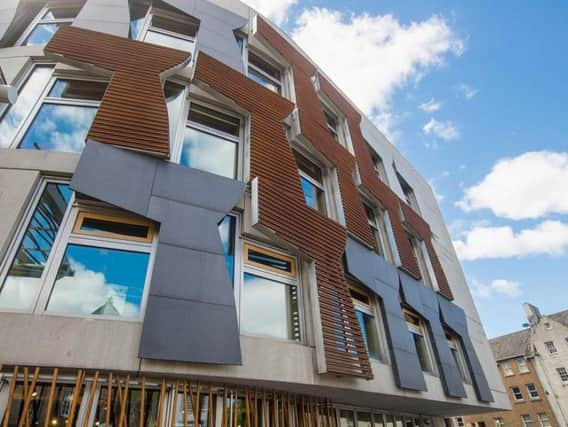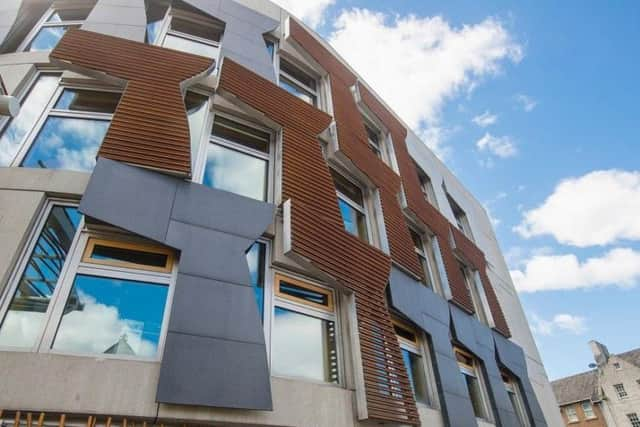Scotland could prosper if independent, says Finance Secretary, as £12.6 billion financial 'black hole' emerges


The Finance Secretary said Scotland could do things differently outside the UK after the Government Expenditure and Revenue Scotland (GERS) showed Scotland's deficit fell slightly to 7 per cent as a share of the economy in 2018/19.
"We could make other choices if we had the powers of independence," the SNP minister said.
Advertisement
Hide AdAdvertisement
Hide Ad

The GERS figures produce an annual row over the economics of independence with opposition parties insisting they underline the value of Scotland's membership of the UK.
Nicola Sturgeon is seeking to stage a second referendum on independence next year, although this has so far been rejected by Westminster.
Scotland's deficit, although down from 8.5 per cent the previous year, is now six times higher than the situation across the rest of the UK and higher then anywhere else in Europe.
Pro-union politicians claimed the figures underline the "union dividend" Scotland enjoys, with Scots now enjoying public spending levels of £1,661 per head higher than the UK average.
And although Scotland's deficit fell by £1.1 billion (14 per cent) to £12.6 billion, this now accounts for more than half of the UK's total deficit.
Mr Mackay accepted that the deficit was too high as he launched the figures in Bonnyrigg, Midlothian, today.
"The issue we have in Scotland is that macroeconomic policy is still determined by the UK," he said.
"It wouldn't be the position of the finances of an independent Scotland on day one.
Advertisement
Hide AdAdvertisement
Hide Ad"The starting position of an independent Scotland would be determined by whatever financial arrangements we have in place and of course we would want to deliver a sustainable strategy that grows our economy, delivers greater prosperity and fairness, challenges the UK economic model that is failing because it's far too London-centric and focused on the south-east of Scotland."
The figures how that revenues raised by the Scottish Government have risen by £3 billion to £63 billion, after a range of incomes tax rises on higher earners introduced in Scotland.
"There are choices we could make as an independent country around what we spend," Mr Mackay added.
"The fact that we're raising more in Scotland, we're raising enough to pay for devolved services, social protection, I think it shows there are choices we can make around reserved expenditure.
"To give you an example £6.5 billion is assigned to either debt interest or defence spending.
"That's a figure that's allocated to Scotland, it doesn't actually reflect what's actually spent in defence in Scotland."
Despite the rise in taxes being collected, revenues raised in Scotland amounted to £11,531 per head. This is £307 below the UK average, despite higher public spending levels north of the border.
Tory finance spokesman Murdo Fraser stepped up calls for the SNP to ditch its bid for independence.
Advertisement
Hide AdAdvertisement
Hide Ad“These figures reveal an enormous gap between what Scotland spends and what it raises in tax," he said.
“These figures make it clear – had we followed Alex Salmond and Nicola Sturgeon’s advice in 2014 and backed independence – Scotland would now be facing up to an unprecedented financial black hole."
Labour leader Richard Leonard added: “These figures underline the importance to Scotland’s vital public services like our NHS of remaining part of the UK.
“A stand-alone Scotland would have one of the biggest fiscal deficits in the developed world, and the SNP’s shock treatment plan to close it is by dumping the pound and imposing unprecedented levels of austerity."
CBI Scotland director Tracy Black said the figures show Scotland's finances are "moving in the right direction".
But she added: "There’s absolutely no room for complacency, particularly as Scotland still lags way behind the rest of the UK when you look at the deficit as a percentage of GDP."
“The inescapable fact is that Scotland spends more than it raises in taxation is a timely reminder of why a thriving and competitive private sector is essential for funding the kind of public services we all want to see.”